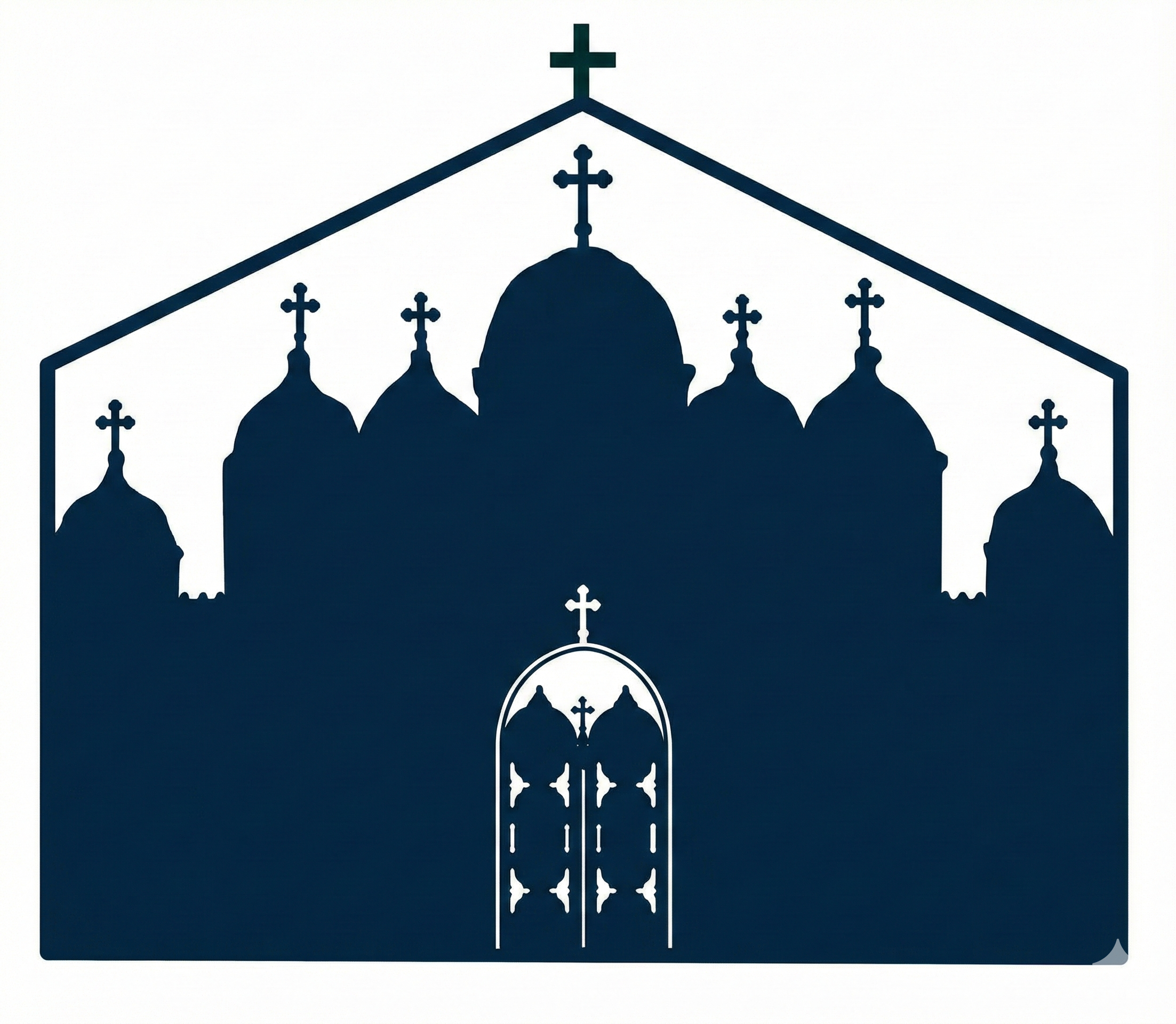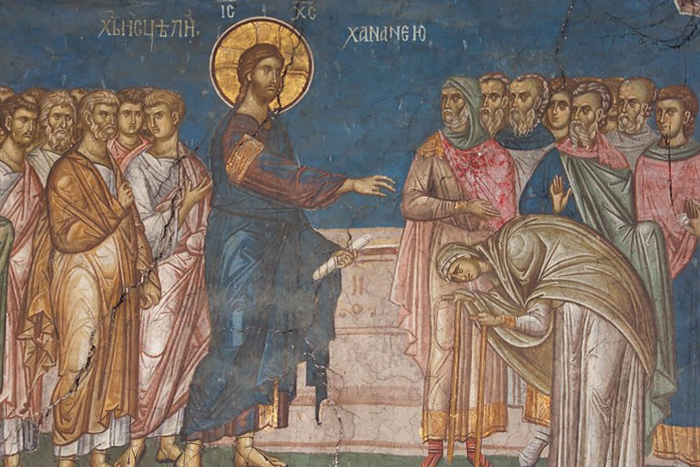Luke 13:10-17 2023/12/10 Osaka Church
In the name of the Father and the Son and the Holy Spirit.
One Sabbath day in the synagogue, a woman who had been hunched over for eighteen years and could not straighten up was immediately healed by Jesus, and she stood up and began praising God. When the ruler of the synagogue saw this, he became angry and began to accuse the Lord, saying that he had broken the Sabbath. Healing someone was also considered as work that was prohibited on the Sabbath. Jesus, instead of just adhering to the laws, condemned the synagogue ruler for his lack of rejoicing at the healing of a woman: ‘Hypocrites!’ he excaimed.
The people who watched the whole thing “rejoiced when they saw all the wonderful works that Jesus had done.”(Luke13:17)
“Wonderful works” is translated by St. Nicholas as “works of illumination.” It is also translated as “a glorious deed.” It’s not an “ordinary miracle” but a “shiny miracle.” Moreover, what people praised was “all” the wonderful works of Jesus. People remembered not only the miracles of that day, but all the miracles that the Lord had done, and the people were astonished, praised, and rejoiced at the sight of something completely new that these miracles pointed to, like light that suddenly overflowed in the darkness. Why….
We must not forget that this healing took place during Sabbath worship.
Actually, this is not the only Sabbath healing done by Jesus. On another Sabbath, he noticed a man with a withered hand, also in the synagogue, and called out to him, “Rise up and come in.” Just like the bent-back woman, He healed him without asking. It was also on the Sabbath that the man who had been crippled for thirty-eight years by the pool of Besseda was healed. It was also on the Sabbath that a man who had been blind from birth was healed by putting mud on his eyes. And in all cases, it was not because they asked for it; rather, Jesus unilaterally noticed them, and by His firm and strong will, they were healed. Why?
There is actually a challenge and declaration from the Lord Jesus here.
If what Jesus did was simply an expression of love, then there would be no need to break the law and heal on the Sabbath, as the synagogue elders said when they saw the Lord’s healing in the synagogue and taunted Him. Here, the Lord had to “break” the law in front of the people. The Law was originally given by God to the “people of God”, who were brought out of the yoke and bondage in the land of Egypt. By obeying it people expressed their love for God in their joy, and that God loved them. It was a”signpost’’ to help them love their neighbors, who they live with. However, people forgot this and used God’s law as a means to confirm their own righteousness rather than God’s, to flaunt it to those around them, and to judge and despise those who could not keep it. The Lord dared to break this law in front of the people. He challenged the Pharisees and scribes, who were dogmatic and strictly adhered to rules, and who had no doubts about their own righteousness. He asked, “Do you not realize it yet? Do you still think that the same days and times will continue without change?” The coming of Jesus is the coming of the Kingdom, and the old times are coming to an end. The Lord deliberately chose the Sabbath day to demonstrate this. The Sabbath is a day full of anticipation as we await the new creation of the world and the human being.
The Lord declared. “Woman, your illness is cured.” This is also a declaration to all of humanity, who have continued to suffer from incurable illnesses due to living apart from God. The end is always the beginning of a new time. The old days when the power of the law and the power of sin endlessly reinforced each other, and the two intertwined to keep us immobile, have come to an end, and we are “set free from bondage” (13:16). A new time has begun in which we can stretch our bodies straight toward God. As the Lord called us to repentance, saying, “The time is fulfilled, and the Kingdom of God is at hand” (Mark 1:15), this new time is the time of the “eternal Kingdom of God.” This time of the new “Kingdom of God” proclaimed on the Sabbath day, which is Saturday, was eventually realized on Sunday by the resurrection of the Lord who buried the old “time” with Himself on the cross on the third day.
It’s this day. The Lord’s Day, the day to celebrate the Resurrection of the Lord. This is the day when we gather together for the Eucharist of the Lord. We are experiencing in the brilliance of this gathering of the Lord’s Day the new days, the new time, and the arrival of God’s eternal kingdom, announced on the Sabbath when the Lord put an end to the old days. There is no other purpose for a Christian’s life than to confirm this newness in our own lives, and to communicate this newness confirmed on Sunday, the Lord’s Day, to the world.

